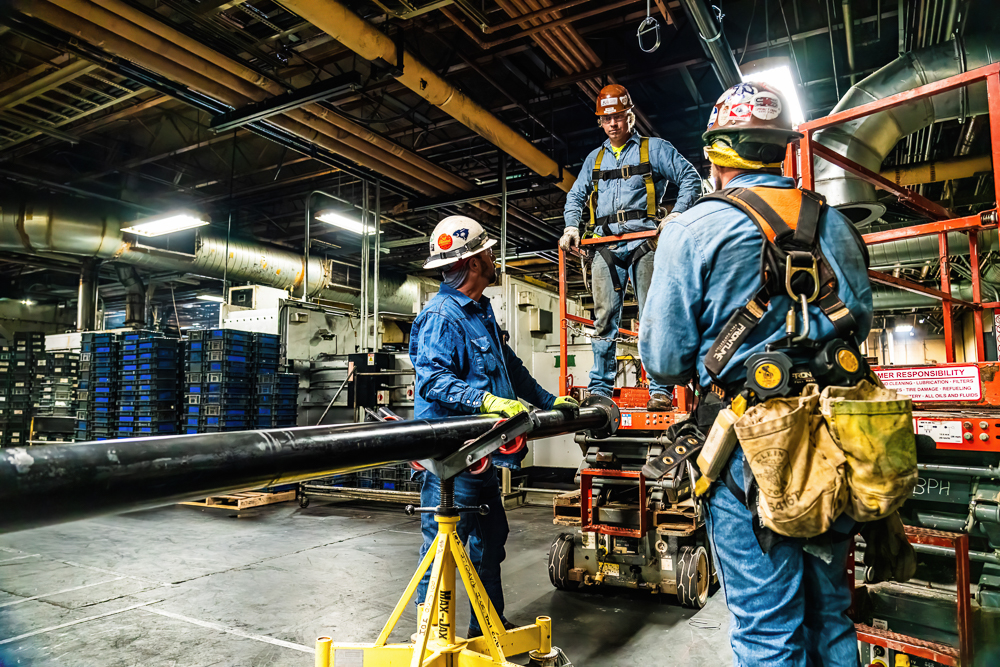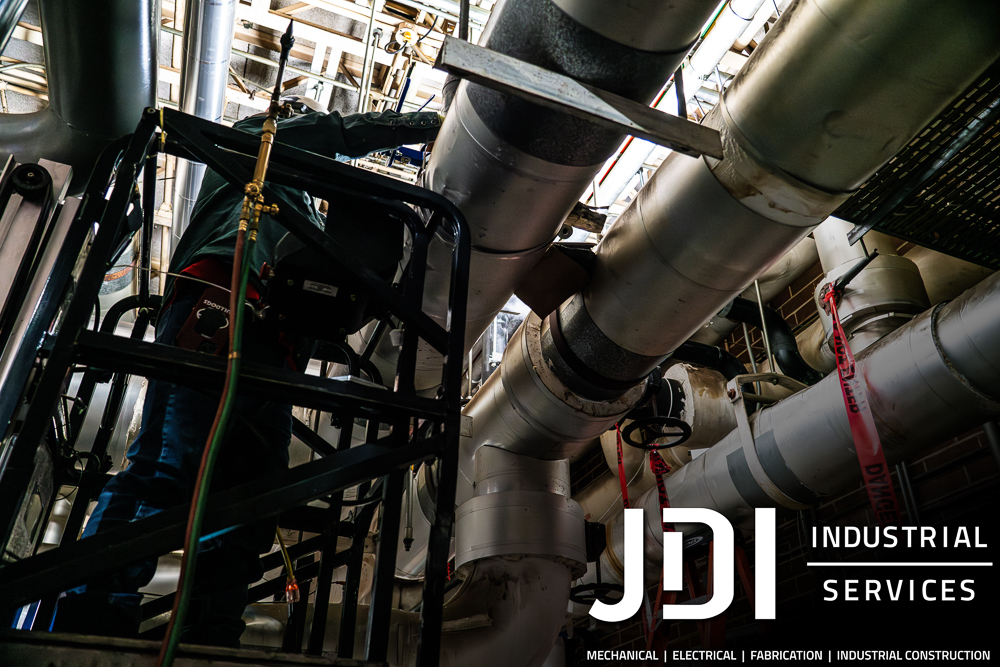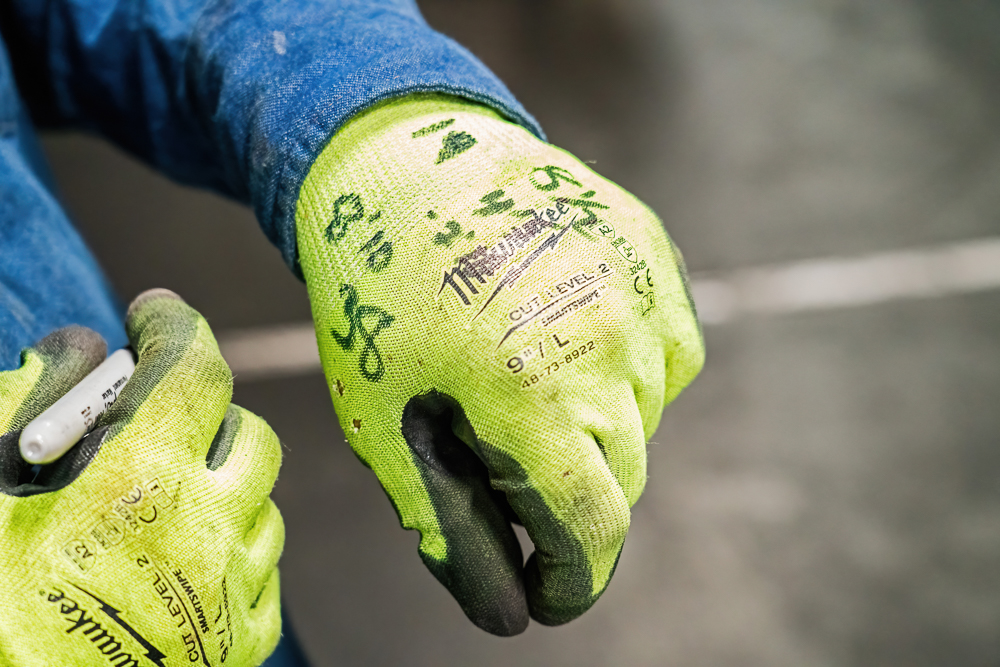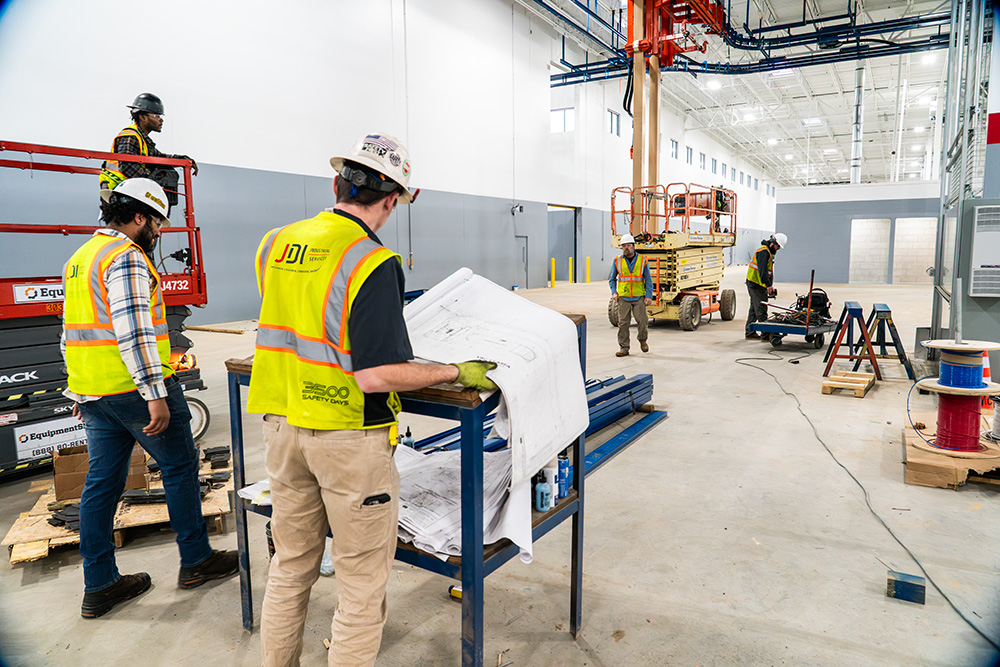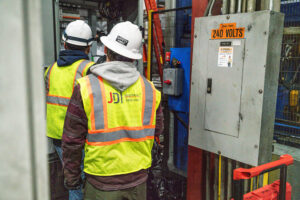What is a Mechanical Contractor?
In the world of construction and maintenance, mechanical contractors play a pivotal role. They are the professionals responsible for the design, installation, and upkeep of mechanical systems.
But what exactly is a mechanical contractor? And what do they do that sets them apart from other types of contractors?
This article aims to answer these questions. We at JDI will delve into the scope of work for mechanical, the services we offer, and the qualifications our workers need.
We’ll also explore the importance of mechanical contractors in the construction industry. And how they contribute to the efficiency and sustainability of buildings and facilities.
By understanding the role of mechanical contractors, business consultants can provide better advice to their clients. Especially those in industries that heavily rely on mechanical systems. So, let’s dive in and unravel the intricacies of mechanical contracting.
The Essence of a Mechanical Contractor
What do mechanical contractors do? They specialize in the planning and installation of mechanical systems. These systems include HVAC, plumbing, refrigeration, and more. They ensure these systems function correctly and efficiently.
Mechanical contractors differ from general contractors. While general contractors oversee entire projects, mechanical contractors focus on specific systems within those projects.
These professionals are involved from the initial phases of a project. They assess requirements, design systems, and manage installations. Their role is crucial for maintaining the overall comfort and functionality of a building.
Mechanical contractors work closely with architects and engineers. This collaboration ensures the mechanical aspects integrate seamlessly with other construction components. This integration is vital for building efficiency and safety.
In summary, a mechanical contractor is not just about installation. They bring technical expertise and project management skills to every project. From design to execution, their work is fundamental in ensuring mechanical systems meet industry standards and client expectations.
The Scope of Work for Mechanical Contractors
Mechanical contractors handle a wide array of systems integral to buildings. Their work is diverse, covering many technical aspects.
They manage both new installations and the repair of existing systems. This ensures buildings remain functional and up to date.
Their scope also includes system upgrades and retrofits. These tasks are crucial for improving energy efficiency and system performance.
Key responsibilities include:
- System design and planning
- Installation of HVAC, plumbing, and piping systems
- Maintenance and repair services
- Compliance with safety and industry standards
Mechanical contractors play a vital role in modern building projects. Their expertise spans from concept through to completion. As such, they must adapt to new technologies and regulations to ensure optimal system functionality. By understanding the comprehensive scope of their work, business consultants and project managers can better coordinate with these professionals for successful project outcomes.
Services Offered by Mechanical Contractors
Mechanical contractors like JDI Industrial need to provide a range of services that are essential for modern infrastructures. Their responsibilities extend beyond mere installation tasks.
They encompass comprehensive system design and ongoing maintenance to ensure optimal performance. These contractors work across various sectors to address specific mechanical needs.
The following are typical services offered:
- HVAC system setup, installation, and maintenance
- Plumbing and piping system solutions
- Refrigeration and process piping integration
- Energy management and sustainable system upgrades
- Emergency repair and troubleshooting services
Their role is crucial in maintaining operational efficiency. This ensures that facilities run smoothly and meet industry standards. By delivering tailored solutions, mechanical contractors help businesses improve system reliability. Their expert services not only support operational demands but also align with long-term business goals in terms of cost-effectiveness and environmental sustainability.
Chiller Systems
Chiller systems are key components managed by mechanical contractors. They install, maintain, and repair ventilation, and air conditioning systems.
Contractors ensure these systems provide optimal machinery cooling. Their expertise ensures energy-efficient operation and long-term reliability.
Plumbing and Piping Systems
Plumbing and piping systems are foundational elements in any facility. Mechanical contractors handle installations and troubleshoot issues to ensure seamless operations.
Their role is vital in maintaining water supply systems. They also ensure that drainage and waste systems function without disruptions.
Process Piping
Process piping is integral to manufacturing and industrial operations. Contractors ensure these systems operate efficiently, supporting various industrial processes.
Energy Management and Sustainability
Energy management is increasingly important. Mechanical contractors offer solutions that align with sustainability goals.
They implement energy-saving technologies that reduce operational costs. This focus not only meets industry standards but also supports environmental conservation efforts.
Qualifications and Skills of a Mechanical Contractor
Becoming a mechanical contractor involves a combination of education and practical experience. A strong foundation in mechanical engineering is often essential.
Many contractors also pursue specific trade certifications. These certifications demonstrate specialized knowledge and adherence to industry standards.
Skills in project management are crucial for mechanical work. They must coordinate complex projects efficiently and within budget and timeline constraints.
Strong problem-solving abilities are key. Mechanical staff must address unexpected issues swiftly to keep projects on track. Additionally, effective communication skills are vital for collaborating with other professionals and clients, ensuring smooth project execution from start to finish.
The Importance of Mechanical Contractors in Construction
Mechanical contractors play a critical role in the construction industry. They ensure the seamless integration of mechanical systems within buildings.
Their expertise extends beyond installation. Our contractors at JDI are pivotal in maintaining and upgrading systems to ensure continuous efficiency.
They contribute significantly to the functionality and safety of structures. This impact is felt in both new constructions and retrofit projects. They also need to be able to connect with the right supplier network to bring affordable and quality parts to their clients.
Their involvement in energy management projects is increasingly vital. Additionally, they ensure buildings and processes meet modern energy standards and sustainability goals.
Selecting a Reliable Mechanical Contractor: Tips and Considerations
Choosing the right contractor is crucial for project success. Start by evaluating their experience and past projects. A proven track record often indicates reliability and expertise.
Consider the contractor’s certifications and licenses. Compliance with industry standards is essential. It ensures adherence to best practices and safety regulations. JDI has a mechanical license in the states of South Carolina, North Carolina, and Georgia, and reciprocating to other states. This allows us to work on your mechanical projects in SC, NC, and GA, as well up to $100 mm projects due to our unlimited licensure.
Communication skills and customer service are also vital. A contractor who communicates effectively can address concerns promptly. This helps in maintaining a smooth workflow.
Additionally, seek references or reviews from past clients. Honest feedback can offer insights into the contractor’s professionalism and work quality.
Conclusion: The Future of Mechanical Contracting
Mechanical contracting is evolving with the construction industry’s needs. Embracing innovative technologies and sustainability is key for future growth. As energy efficiency and smart building systems gain importance, mechanical contractors must adapt to stay relevant.
Continual professional development is crucial to JDI Industrial Services. By keeping up with technological advancements and regulations, we can provide the cutting-edge solutions manufacturers and facilities need. This commitment ensures our essential role in modern infrastructure and construction projects as they continue to grow and build.

